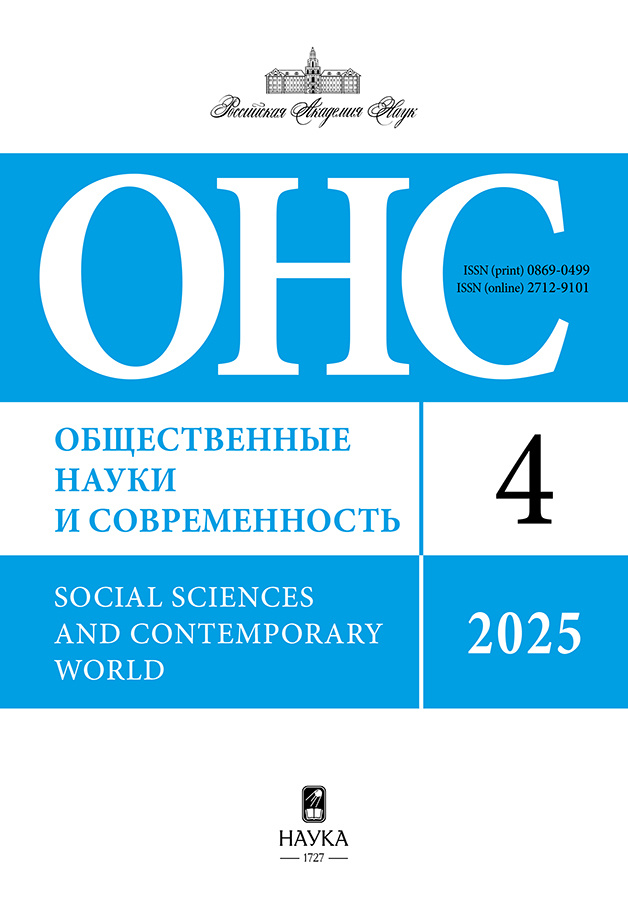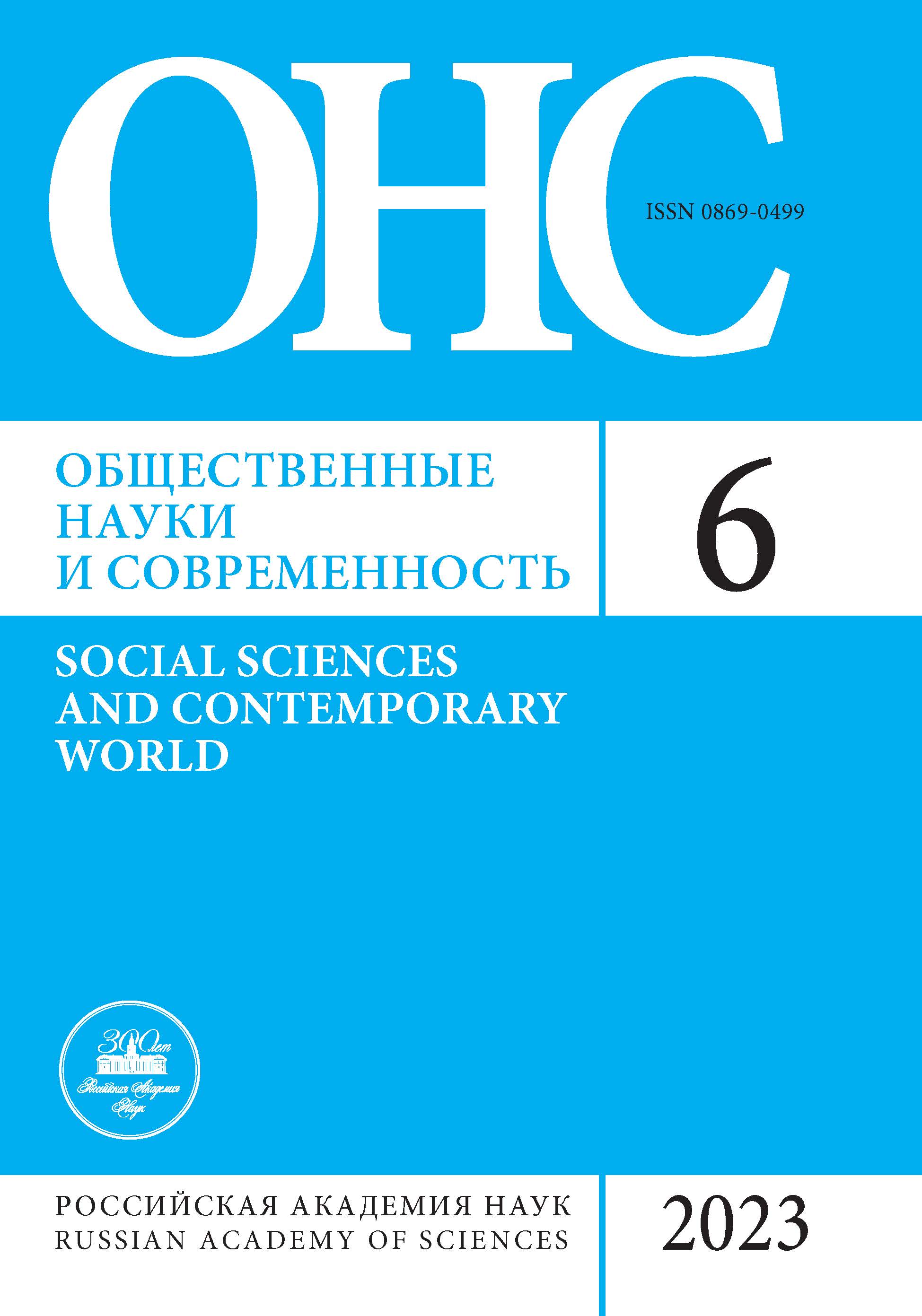Право на науку в контексте деформации международного правопорядка в условиях санкций
- Авторы: Шугуров М.В.1, Печатнова Ю.В.2
-
Учреждения:
- Cаратовская государственная юридическая академия
- Алтайский государственный университет
- Выпуск: № 6 (2023)
- Страницы: 1-19
- Раздел: Статьи
- URL: https://kazanmedjournal.ru/0869-0499/article/view/675137
- DOI: https://doi.org/10.31857/S0869049923060011
- EDN: https://elibrary.ru/MTEOMI
- ID: 675137
Цитировать
Полный текст
Аннотация
Односторонние секторальные «научные санкции» Запада представляют собой масштабное явление в современных международных отношениях. Дана оценка ограничительных мер в сфере международного научного сотрудничества, представлен анализ способов обеспечить международно признанное право человека на науку в условиях санкций. Обосновано новое направление правозащитной деятельности. Сделано заключение, что антироссийские ограничительные меры в сфере международного научного сотрудничества нарушают базовое право на науку. Сформулирован вывод о том, что активными субъектами экстерриториальных нарушений данного права становятся научные учреждения. Усложнение санкционного режима в научной сфере, включая введение горизонтальных и вертикальных ограничительных мер, свидетельствует об использовании науки в геополитических целях.
Об авторах
Марк Владимирович Шугуров
Cаратовская государственная юридическая академия
Email: shugurovs@mail.ru
Саратов, Россия
Юлия Вадимовна Печатнова
Алтайский государственный университет
Email: jp_0707@mail.ru
Барнаул, Россия
Список литературы
- Пастухова Л.В. (2022) Право на доступ к научным знаниям: международно-правовая регламентация и обеспечение // Ученые записки Крымского федерального университета им. В.И. Вернадского. Юридические науки. Т. 8. № 3. С. 56-67.
- Фомкин Ф.С. (2022) Российская наука в период санкций // Respublica Literaria. № 3. С. 106-117. doi: 10.47850/RL.2022.3.3.106-117
- Ханин Г.И. (2022) Российская наука в период санкций в свете проблемы модернизации российской экономики // Управление наукой: теория и практика. № 3. С. 69-84. doi: 10.19181/smtp.2022.4.3.6
- Хмелевская С.А. (2022) Право на науку: взгляд через оптику философии науки // Мысль: Журнал Петербургского философского общества. Т. 22. С. 120-132.
- Хмелевская С.А., Зименкова Н.Н. (2019) Право участия в научном прогрессе и пользование его благами: философско-правовые размышления // Пробелы в российском законодательстве. № 5. С. 183-188.
- Шугуров М.В. (2015) Международно-признанное право человека на свободу научных исследований и российское законодательство // Современное право. 2015. № 10. C. 149-157.
- Шугуров М.В., Серебряков А.А., Печатнова Ю.В. (2022) Международное научно-исследовательское сотрудничество России в условиях масштабирования санкций: характеристика институциональных разрывов // Международный журнал гуманитарных и естественных наук. № 4-3. С. 235-244. doi: 10.24412/2500-1000-2022-4-3-235-244
- Afesorghor S.K. (2016) The Impact of Economy Sanctions on Income Inequality of Target States. World Development. vol. 83, no. 7, pp. 1-11. doi: 10.1016/j.worlddev.2016.03.015
- Bazaliy Y., Garaschuk O., Gogotsi Y., Anisimov I., Kvit S., Zagorodny A. (2023) Ukraine: don't Relax Scientific Sanctions against Russia. Nature. vol. 615. no. 7950, p. 34. doi: 10.1038/d41586-023-00554-8
- Beiter K.D., Karran T., Appiagyei-Atua K. (2016) Academic Freedom and its Protection in the Law of European States. Measuring an International Human Rights. European Journal of Comparative Law and Governance. no. 3, pp. 254-345. doi: 10.1163/22134514-00303001
- Bezuidenhout L., Karrar O., Lezaun J., Nobes A. (2019) Correction: Economic Sanctions and Academia: Overlooked Impact and Long-term Consequences. PLOS ONE. vol. 14, no. 11: e0225277. doi: 10.1371/journal.pone.0222669
- Butler D. (2019) How US Sanctions are Crippling Science in Iran. Nature. vol. 574, no. 7776, pp. 13-14. doi: 10.1038/d41586-019-02795-y
- Claude R. (2002) Scientists' Rights and the Human Rights to the Benefits of Science // In: Chapman A., Russell S. Core Obligations: a Framework for Economic, Social and Cultural Rights. Antwerpen: Intersentia, pр. 247-278.
- Dricoll D.D. (2010) Economic Sanctions and Culture. Defense and Peace Economies. vol. 22, no. 3, pp. 423-448.
- Esmaeili H., Ataie-Ashtiani B. (2021) The Autonomy of Science as a Civilian Casualty of Economic Warfare: Inadvertent Censorship of Science Resulting from Unilateral Economic Sanctions. Science and Engineering Ethics. vol. 27. Article number: 49. doi: 10.1007/s11948-021-00321-w
- Fu Q., Chen Y., Chyi-Lu J., Chang Ch.-P. (2020) The Impact of International Sanctions on Environmental Performance. Science in the Total Environment. vol. 15, no. 4, pp. 38-62.
- Gordin M.D. (2022) A Century of Science Boycotts. Nature. vol. 606, no. 7912, pp. 27-29. doi: 10.1038/d41586-022-01475-8
- Hwami M. (2021) A Comparative Scoping Review of the Impact of International Economic Sanctions on Education. Compare: A Journal of Comparative and International Education, vol. 52, no. 2, pp. 1-17. doi: 10.1080/03057925.2020.1846120
- Kansra D. (2020) Advancing the Human Right to Science under the International Covenant on Economic, Social and Cultural Rights. RMLNLU Law Review. vol. XI, pp. 1-12.
- Kokabisaghi F., Miller A., Bashar F., Salesi M. (2019) Impact of United States political sanctions on international collaborations and research in Iran. British Medical Journal of Global Health. vol. 4, issue 5:e001692. P. 1-7. DOI: 10.1136/ bmjgh-2019-001692
- Matsuura H. (2013) Protecting the Right to Benefit from Science. Science. vol. 341, no. 6148, pp. 841-842. doi: 10.1126/science.341.6148.841-a
- Moiseienko A. (2022) The Future of EU Sanctions against Russia: Objectives, Frozen Assets, and Humanitarian Impact. Eucrim: the European Criminal Law Associations' Forum. issue 2, pp. 130-136.doi: 10.30709/eucrim-2022-008
- Moret E.S. (2015) Humanitarian Impacts of Economic Sanctions on Iran and Syria. European Security. vol. 24, no. 1, pp. 120-140.
- Mousavi S., Jokar F., Mohammadi A. (2015) US Unilateral Sanctions against Iran; Contradiction in Slogan and Conduct, Extreme Politicization of Human Rights. Public Law Research. vol. 16, no. 44, pp. 149-173.
- Porsdam H. (2022) Science as a Cultural Human Right. Philadelphia: University of Pennsylvania Press. 208 p.
- Shahabi S., Fazlalizadeh H., Stedman J., Chuang L., Shariftabrizi A., Ram R. (2015) The Impact of International Economic Sanctions on Iranian Cancer Healthcare. Health Policy. vol. 119, no. 10, pp. 1309-1318.
- The Right to Science: Then and Now / H. Porsdam and S.P. Mann (eds.). Cambridge, New York: Cambridge University Press, 2022. 225 p.
- Wyndham J.M., Vitullo M.W. (2018) Define the Human Right to Science. Science. vol. 362, no. 6418, pp. 975-995. doi: 10.1126/science.aaw1467
Дополнительные файлы











